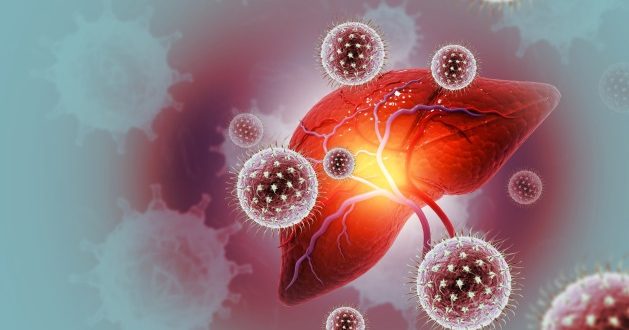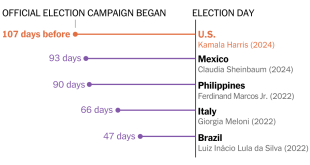
Jul 25 (IPS) – July 28th is World Hepatitis Day, created to celebrate the life and work of Nobel Prize Winner Dr. Baruch Samuel Blumberg. Blumberg’s work contributed to the discovery of hepatitis B, and the development of a vaccine that could prevent infection with this infectious viral disease. These discoveries revolutionized the public health response in preventing the liver cancer that hepatitis B causes.
The hepatitis B vaccine has been used for decades to save lives. Babies are given the vaccine at birth to protect them from getting infected with the hepatitis B virus, thus reducing the risk of children developing chronic liver disease or liver cancer later on in life. Many millions of people around the world are today free from the fears and trauma of living with hepatitis B as a result of the vaccine that Blumberg helped develop.
Approximately 95% of infants who catch hepatitis B will develop a chronic infection, and roughly a quarter of them will eventually die from liver disease. This is why infant vaccination against hepatitis B is so important.
The WHO recommends that all babies receive the vaccine as soon as possible after birth, preferably within 24 hours, followed by two or three doses four weeks apart. This gives babies about 100% protection against infection from hepatitis B and against developing chronic liver disease or liver cancer later on in life.
Kudos to GAVI, the Vaccine Alliance, national governments and other international partners, who have ensured that many children around the world have been vaccinated against the hepatitis B virus, especially in low-middle income countries.
My own children are among those who have benefited from these programs and from Blumberg’s research, as they were vaccinated against Hepatitis B at birth.
Not all babies are as fortunate, especially in Africa, where out-of-stock vaccines, home deliveries and weak health systems stand in the way of their receiving this life-saving intervention within 24 hours of delivery.
Only 18% of African infants have received the hepatitis B birth dose vaccine at birth in 2022, compared to 90% in Asia, so intensified efforts are required to protect the next generation of children around the world.
I never got the hepatitis B vaccine when I was born, as the birth dose was only introduced fairly recently in most countries in the Global South. Nor was I vaccinated when I was employed as a healthcare provider in a hospital – which is where I should have been protected but is the place I got infected in 2004. I am fortunate to have been diagnosed early though, and take daily medication to stop my liver from developing cancer.
Despite Blumberg’s breakthroughs, however, hepatitis is still a killer disease. It still causes the deaths of over 800,000 people globally every year, the majority of whom are diagnosed too late when they already have advanced liver disease.
Today, as we commemorate Blumberg’s birthday and mark World Hepatitis Day, we need to ask ourselves why that is. We need to ask why there is still such low awareness of hepatitis around the world. Why hasn’t this scientific breakthrough of discovering hepatitis B translated into eliminating the hepatitis B virus? Why have only 4% of hepatitis B patients been diagnosed while only 2.2% have been treated? Why have there been such poor investments into mass testing and treatment programs around the world to identify and place the “missing millions” on treatment?
We need to say clearly that this is not acceptable. as delays in testing and treatment is likely to lead to many more developing liver complications unnoticed. To eliminate hepatitis by 2030, we need to intensify efforts to reduce deaths by 65%. This means we MUST scale-up testing to find undiagnosed populations living with hepatitis B and C, the majority of whom do not know their status.
It is a big shame that I contracted the virus in a place where I should be safe and protected, the hospital. This is the fate of many healthcare workers around the world and babies who do not receive the hepatitis B vaccine to protect them from getting an infection.
Baruch Bloomberg would be turning in his grave if he knew that despite the available vaccines and treatments there are so many people who cannot access them due to poor funding from government and donors across the world! We owe more to him and his memory.
The global community has the opportunity to turn off the tap of new hepatitis B infections and save millions of children and the global community from the fears of liver cancer attributable to hepatitis B in the future. Let this World Hepatitis Day be the day we decide to honor Blumberg’s memory in deed as well as word.
Danjuma Adda, M.P.H., is the executive director of the Centre for Initiative and Development in Nigeria and a senior fellow with Aspen Institute. He was the committee chair of the 2024 World Hepatitis Summit and the past president of the World Hepatitis Alliance.
© Inter Press Service (2024) — All Rights ReservedOriginal source: Inter Press Service
 Top Naija News – Nigeria News, Nigerian News & Top Stories Top Naija News – Nigerian Newspapers, Nigerian News. topnaijanews is a daily Nigerian newspaper covering Latest News, Breaking News, Entertainment, Sports, Lifestyle and Politics.
Top Naija News – Nigeria News, Nigerian News & Top Stories Top Naija News – Nigerian Newspapers, Nigerian News. topnaijanews is a daily Nigerian newspaper covering Latest News, Breaking News, Entertainment, Sports, Lifestyle and Politics.




